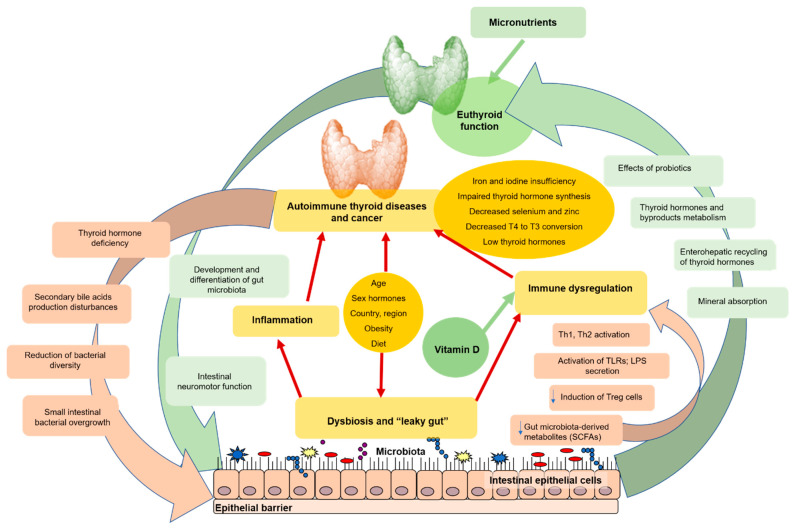Figure 1.
Gut–thyroid interaction in health and disease (autoimmune thyroid pathology and cancer). Thyroid diseases are frequently associated with dysbiosis. On the one hand, dysbiosis changes the immune response by encouraging inflammation and decreasing immunological tolerance, disrupting the intestinal membrane and increased intestinal permeability (a.k.a., “leaky gut”), resulting in increased antigen exposure and local inflammation. On the other hand, dysbiosis can directly affect thyroid hormone levels due to bacterial deiodinase activity and TSH inhibition [74]. The gut microbiota also regulates the absorption of thyroid-related nutrients such as iodine, selenium, zinc, and iron. All of them are required for thyroid function, and there is a definite correlation between thyroid dysfunction and changes in these minerals’ levels. Probiotics have been demonstrated to be effective in thyroid problems and can have a good effect. The healthy or diseased thyroid gland can also influence microbiota via many mechanisms, including melatonin. Legend: green arrows (wide and thin) denote a predominantly positive impact, while pink arrows (wide and narrow) indicate a primarily negative effect.

